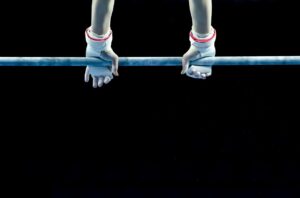Macroeconomics 111
Man. There is so much economic news happening! Thankfully, we have started to build a foundation to branch off of, so I don’t need to start from scratch when I say that it looks like Congress is going to pass a bill for an additional $300,000,000,000 (300B) for small business “loans” soon, after they quickly ran out of their initial $350,000,000,000 (350B) a few weeks ago. “Futures” (bets on expected future prices) for U.S. crude oil plummeted as low as $10.85 per barrel for May. Normally, when market prices are below cost of production, suppliers can store their oil and and wait for prices to rise to sell it, but the plot twist here is our storage, as a nation, is nearing capacity. This is unprecedented, and the main reason why the market hasn’t stabilized even though Russia and Saudi Arabia did agree to cut production last week. The current contracts expire tomorrow.
[Update: holy toledo, the crude oil apocalypse happened after I wrote this. I will write about it tomorrow]
If you need to catch up on Small Business Loans or the CARES Act, I already wrote about it
I broke down where all this money is coming from, and the U.S. national debt
And I explained the current U.S. crude oil market
Since my two most recent posts on taxes were fairly technical, and since some of you may now think I think billionaires should be left alone to hunt people for sport or whatever billionaires do to feel alive, I’m zagging to focus on poverty.
What even is poverty? It’s defined as “the state of one who lacks a usual or socially acceptable amount of money or material possessions.” Wow, Miriam-Webster, using “socially acceptable” is opening quite a bucket of monkeys. I think I know less than I did before reading the definition?
Let’s agree on a few things: 1) poverty is a real thing, 2) it’s difficult to measure, and 3) the income/wealth involved varies greatly from area to area even within a given country.
Nearly half the global population lives on less than $5.50 per day, as estimated by this 2018 article. In the early 2000’s, World Bank noticed that many developing countries drew their poverty line at around $370 per year, and it became popular to refer to segments of the world who lived on “one dollar per day”. As of 2012, that number was roughly 1,100,000,000 (1.1B) people. In the U.S., the general poverty line for one person is an income of ~$12,000 per year, or $33 per day. Some would argue that poverty levels are overstated in the U.S., because focusing on income alone ignores welfare benefits, such as food stamps. The Heritage Foundation has a bunch of interesting content on poverty in America, including this piece: How Poor, Really, Are America’s Poor? The average poor household in the U.S. has central heating and A/C, a widescreen tv and internet connection, and did not go hungry for a single day last year. Over 40% of these households own at least two cars, and over 80% have at least one smartphone.
A fourth thing we need to agree on: no matter how wealthy a country or the world gets, there will always be a top 10% and a bottom 10%. Saying someone is in the bottom 10% does not necessarily mean they can’t afford necessities. Being poor is not the same as below the poverty line.
Fifth: When it comes to poverty rates and life for the poor in general, things are getting better, not worse. Here’s an excerpt from HumanProgress.org, from an article entitled “We Just Had The Best Decade In Human History“:
“Let nobody tell you that the second decade of the 21st century has been a bad time. We are living through the greatest improvement in human living standards in history. Extreme poverty has fallen below 10 per cent of the world’s population for the first time. It was 60 per cent when I was born. Global inequality has been plunging as Africa and Asia experience faster economic growth than Europe and North America; child mortality has fallen to record low levels; famine virtually went extinct; malaria, polio and heart disease are all in decline.”
-Matt Ridley
HumanProgress.org is a journalistic endeavor dedicated to publishing positive news, and they are a great Twitter follow.
There is a cognitive bias called anchoring, and it’s most commonly explained using marketing and negotiations. The basic idea is once we have a starting point in our heads, we continually refer back to it as our “anchor”, for purposes of comparison, then we make decisions based on whatever our anchor was. Think of infomercials who start by saying their product is “worth” $99, but they’re giving you a one-time offer of three easy payments of $19.99. Compared to $99, $60 seems good… Then they throw in another item for “free”, then another, until you feel like you would be an idiot not to take advantage of this deal! We can’t help but have that original number, $99, stuck in our heads, because we have no other frame of reference. If your initial “anchor” was “all this junk cost $9 to make”, it would be a very different story.
I have been reminding myself of this lately, when I’m trying to assess how effective remote teaching has been. What is my anchor?
Anyway. My Monday movie recommendation is a documentary!
Living On One Dollar is about four students who decide to try to live in rural Guatemala for two months on $1 per day.
I don’t want to claim these guys are my best friends or anything, but I’m acquainted enough to have been at the first private screening of the documentary in Malibu back in 2012. Hopefully that helps pique your interest? “I know someone who knows the people in this documentary” can be a significant nudge, after all. Look, I even dug up the receipts.

I’ll let you make fun of me for only getting 11 likes and using a bad filter IF you also show me one of your instagram posts from 2012. [Thanks, Jared].
Where am I going with this?
Anchors matter. What are your spending habits anchored to? It’s likely they are anchored to your perceived peers, or what advertisements *suggest* you should be anchored to. After all, this is America, where we think we can buy happiness, and everything is a zero-sum competition.
We’re two-thirds of the way through April, which will be the first month to be locked down start to finish. Yesterday, I got my weekly update from an app I use to track my finances, Mint, and it told me I was $x,xxx below my expenditures at this point last month. Four figures for a frugal fella! Now, I had some atypical spending last month, including paying for an appraisal, a home improvement project, and going way over my groceries budget (which should reduce future costs). But those details aren’t the point.
Right now, millions of Americans are getting a pretty good idea of how cheaply they could live, if they needed to minimize expenses. With the economy so uncertain, people are saving for the unknown, and with most of us under orders to stay home, we have stopped spending money on innumerable “non-essential” activities. This free trial run is happening against our will, in many cases, which makes it even more interesting—most people would go their whole lives without a month like this, if they had the choice. No anchor point on the low end.
There has probably been an uptick in things involving online purchases, and people are justifying spending more money on local “essential” businesses like restaurants to help keep them afloat, but on the whole, I would guess there are a lot of people out there realizing just how much money they used to spend on things, and possibly even reconsidering if they will resume spending at the same level on the same things when we “return to normal”.
Is that a good thing?
It’s not good for Gross Domestic Product, that’s for sure. China’s first quarter GDP numbers are out, and they are currently saying their GDP decreased 6.8%. This is huge news not only because of their large role in the world economy (second highest GDP after the U.S.), but because it is the first quarterly decrease in their history, dating back to 1992. If you need an explanation of what GDP is, I already wrote about it.
This is one of the reasons I said GDP was flawed. Over 70% of our GDP is consumer spending, and it doesn’t account for human value or quality of life in the slightest. For example, let’s say a husband gets a promotion at work which allows the wife to quit her job and afford to stay at home with their children. That would be interpreted as a negative by GDP metrics! They are no longer spending money on childcare, and so on and so forth. Along the same lines, if your kid gets old enough to take care of the lawn and you stop paying for lawn service, that’s a decrease in GDP.
Or, imagine if everyone spent two more hours volunteering each week. There is no money transaction, so this would, at best, be neutral in GDP. But it could potentially have a massive effect on the satisfaction and quality of life of the citizens, right? Countries that have a culture of volunteering, or community service, or any amount of unpaid labor and gifts are punished in the metrics. That’s messed up.
The mindset that we must forever be obsessed with increasing GDP goes hand-in-hand with modern U.S. consumer culture. Shop ’til you drop.
You know how sometimes you can get angry at someone before they do or say something, because you know exactly what they are going to do or say? Well, I’m already righteously indignant about the ad campaigns companies are going to be assaulting us with as they try to turn this situation into a positive for themselves, and it hasn’t even started.
I like how ads have gone from “buy a toyota” to “this is a difficult and uncertain time for us all…buy a toyota”
— california guy now (@InternetHippo) April 14, 2020
Because I inherently despise ads and I’m pre-furious, I may have overreacted to an instagram ad for Bombas socks yesterday because it included the phrase “There’s never been a better time to upgrade your socks!” I cannot put into words how much I hate everything about that sentence. Bombas is supposed to be one of the “good guys”, but, listen, just because you “donate” socks to homeless people doesn’t mean you can get away with murder.
So, here’s my take. I think an overall reduction in spending and an increase in saving would be great for individuals and families, even if that means our national GDP takes years to rebuild.
When you are seeing articles like this, The Middle Class is Struggling on Six-Figure Incomes, with quotes like this, “The amount of money we spend every month is more than we make”—seven years into the longest economic boom in recorded history, mind you—there are some assumptions that need to be questioned.
What about this one: It now costs $350,000 a year to live a middle-class lifestyle in a big city—here’s a sad breakdown of why. Please, let me be the first to say, I understand cost of living varies place to place. And just a quick follow-up—you’re batshit crazy. That article drops random facts like, “renting instead of buying would free up $27,000 per year”, and makes you wonder things like, is spending $8,000 a year on vacations essential, or, like, nah? #selfcare
Save more money, people. Your problem is having the wrong anchor point. Imagine a world where everyone anchors their spending to the person next door. They spend more, so you spend more. You spend more, so they spend more. Welcome to debt-town, population you, bro! Don’t anchor your expenditures to your co-workers, or friends, or neighbors, or what your screens tell you. Now that you have a better idea of how low your expenses could be, use that as the anchor. Everything beyond the absolute minimum is a choice, and it needs to be worth the tradeoff.
That’s one of the great things about traveling, by the way (and traveling doesn’t have to be “expensive”, so don’t even start with me). Traveling allows you to get out of your bubble and reassess what matters. Expand your conception of what life is and should be like. Re-anchor. I’ve made a few trips to Guatemala, and it’s beautiful. You can’t travel right now, but you can watch Living On One.


